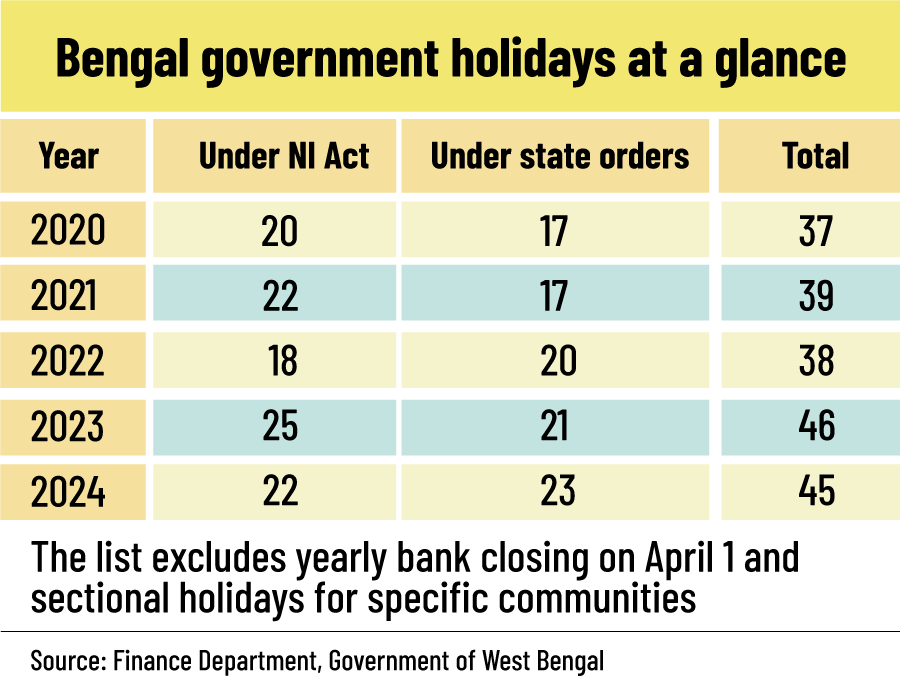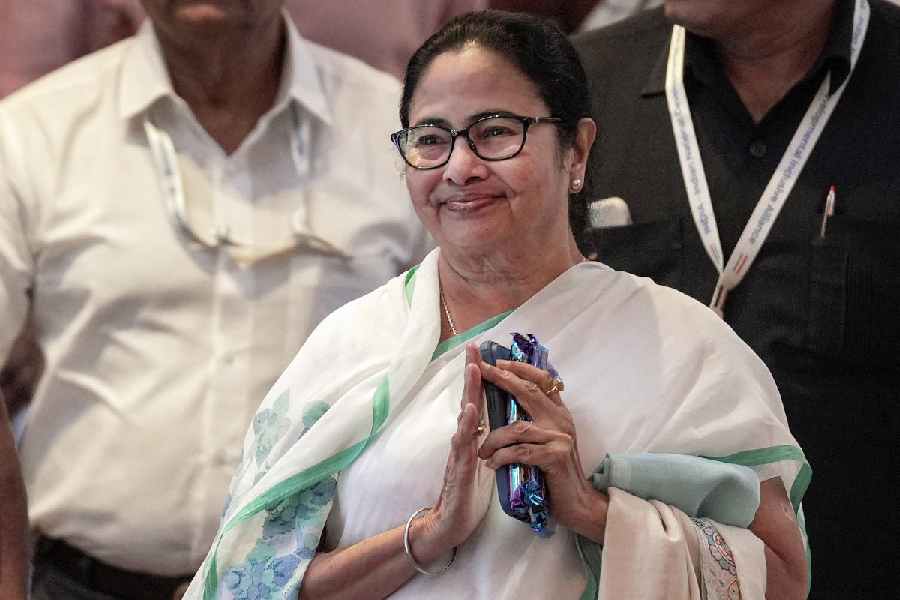While the Dearness Allowance gap between the Bengal government employees and their central counterparts currently stands at a nearly-unbridgeable 40 percent, the Mamata Banerjee administration announced 45 days of public holidays for its babus for 2024, a day less than the number of holidays declared for this year but significantly higher than what was offered during the last three years.
Of the declared holidays for next year, 22 fall under the Negotiable Instrument (NI) Act and an additional 23 come under holidays under the order of the state government. The beneficiaries, besides those working at state government establishments, would also include employees at state-aided educational institutions, civic bodies and panchayats.
The holidays exclude five holidays which fall on Sundays and all weekly offs on Saturdays and Sundays enjoyed by the employees. Three holidays for next year do coincide with Saturdays, though besides the possible additional disappointment that Mahalaya coincides with Gandhi Jayanti on October 2.
But that disappointment, it seems, has been more than made up by the list, announced by the state finance department on Friday, allowing the babus to enjoy an uninterrupted 16-day Puja break next year, effectively starting from Dwitiya (the second day of the auspicious Puja fortnightly) despite the official holidays starting from Chaturthi (the fourth day), October 7. That’s because Chaturthi falls on a Monday preceded by two normal weekly offs. The break would continue till October 18, two days post Lakshmi Puja, which is a Friday. Add another two weekly offs and the math could become a delight for the babus who would be officially required to join work only on October 21.
While the number of official holidays for state government employees in 2023 is 46, the corresponding figures for the preceding three years ranged from 37 to 39.

TTO Graphics
The flip side to the holiday perk is, of course, the fact that state employees currently receive a six percent DA compared to 46 percent of those under payrolls of the central government. Effective July 1, 2023, the Centre recently announced a four percent DA hike which further widened the gap between state employees and their central counterparts.
A section of state employees, under the banner of Sangrami Joutha Mancha (United Platform for Struggle) have been sitting in demonstration at the Sahid Minar ground demanding DA hike and matching it with that of the Centre since January 23 this year, 288 days on the trot.
“It is populist policy,” opined Rajib Dutta, an agitating state employee with the Sangrami Joutha Mancha platform. “The government is destroying the work culture by keeping its employees away from work. It’s like a small return gift to keep its employees happy and obfuscate its gaping failures of DA deficiency and the huge number of vacancies across various departments.”
“The workload of state government employees has gone up considerably on account of the vacant positions which are not being filled up. Even if one gets more holidays there is no way an employee can avoid his or her workload which will only keep piling up after they rejoin work. Moreover, such policies tend to create a rift between employees and the public who think babus only enjoy breaks from work without actually doing any work,” Dutta, a primary school teacher, said.











